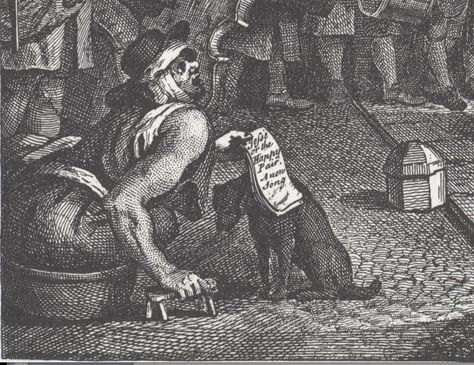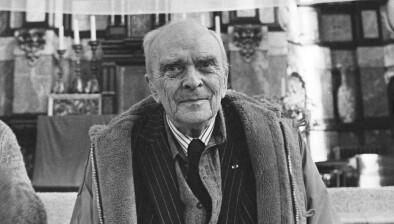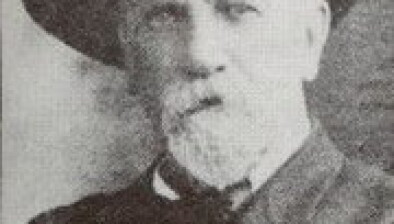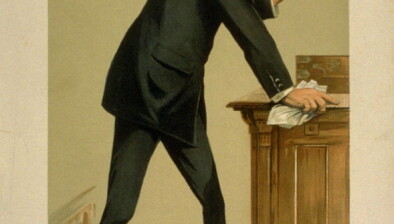Irish Legal Heritage: Billy in the bowl

Navigating the streets of Dublin in a wooden bowl fortified with iron, “Billy in the bowl”, as he was so nicknamed, was born without legs and said to have been blessed with a handsome face. Using this to his advantage, Billy was “one of those curious beggars who frequented fairs and public places, where he picked up a good deal of money” (Collins, 1913). However, Billy wanted more and so he created a cunning act to part people from their possessions.
Hiding behind a hedge on secluded streets in Stoneybatter or Grangegorman in Dublin, Billy would wait for a suitable person to pass before calling out for help. Prompting pity on the unsuspecting victim, “female curiosity, together with Billy’s coaxing ways” would cause “unsuspecting ladies” to rush over to aid the helpless man in the bowl. Billy would then strike using his powerful arms built from a life spent propelling himself around in the bowl, strangling the victim until they could offer no resistance.
Billy’s devious plan would eventually come undone when one evening, sometime in 1786, he bit off more than he could chew. Two women passing through what was then known as Richardson’s Lane, saw Billy pleading with them to donate whatever they could to help his situation.
As they drew closer Billy attacked them and managed to drag them both to the ground, struggling with them over their possessions as they shouted for help. Thinking quickly, one of the women managed to grab the beggar by his hair and jam her thumb in his eye causing enough pain to allow them to escape.
1786 also happened to be the year the Dublin Metropolitan Police was formed and, upon hearing of Billy’s attack on the two women, the police quickly arrested Billy, carrying him to prison in a wheelbarrow. Jailed in Green Street and sentenced to hard labour for the rest of his life, Billy became a legend in Dublin folklore:
You remember that foul evening when you heard the banshees howl
There was lousy drunken bastards singing “Billy In The Bowl”
(The Pogues, 11 Billy’s Bones)
Seosamh Gráinséir











